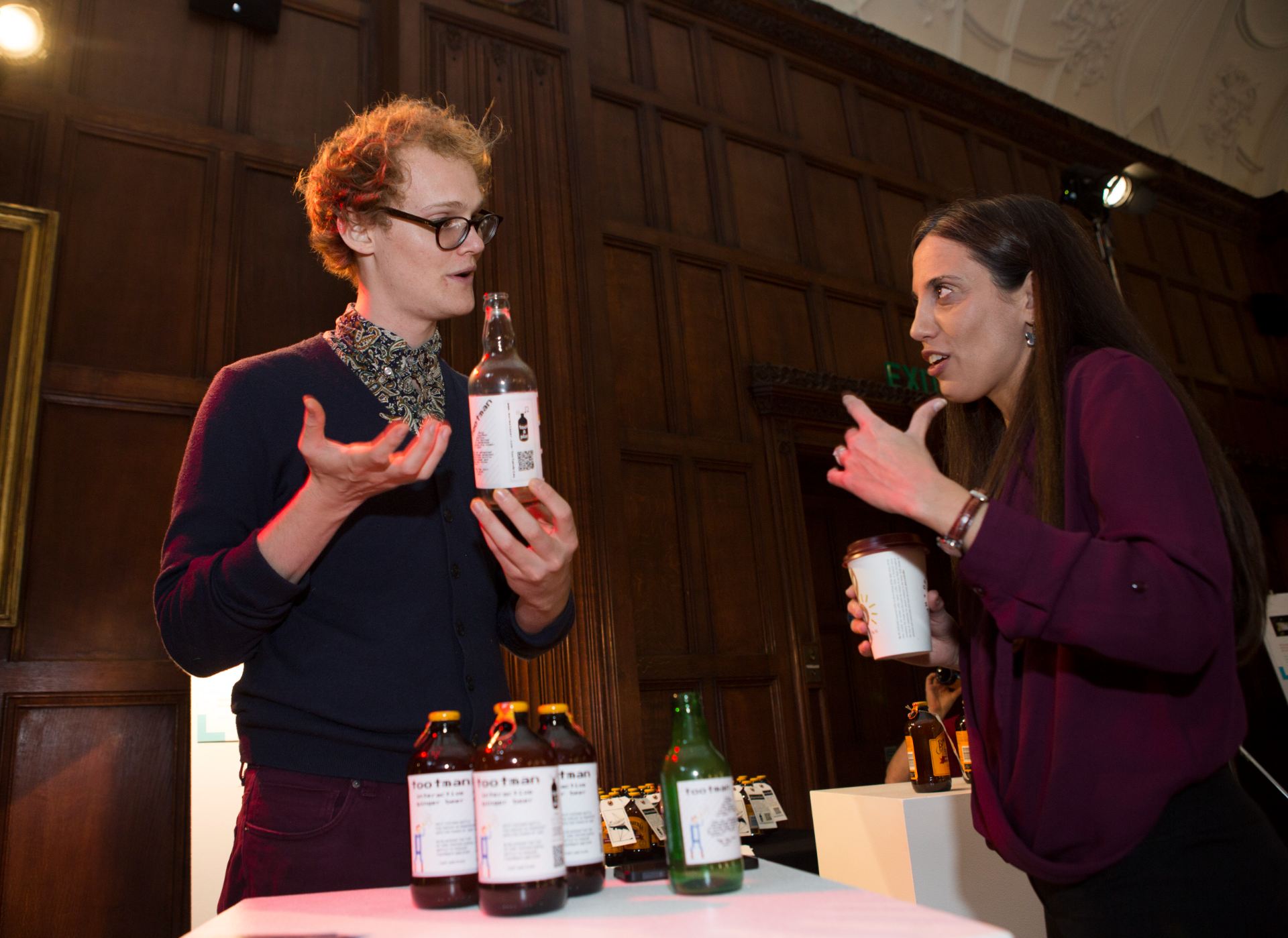Interactive Playable Bottles
What are the societal, playful, and wellbeing implications of being able to control your phone by blowing on a bottle?

While working together on another project at Pervasive Media Studio, Peter Bennett and James Wheale made a surprising discovery: that they could create an app that was controlled by making a wine glass sing.
This quickly developed into controlling the app by blowing across the top of a glass bottle. The level of liquid in the bottle determines the pitch of the note produced, meaning that a bottle or multiple bottles can be simultaneously used to control a phone.
With ideas like multiplayer pub games and stories that unveil themselves as the beverage is consumed, they both felt that such interactions will change the way we consume food and drink in the future, for better or for worse. They sought to explore this powerful new type of interaction further with the goal of investigating how playing with your food can be used for living well.
What did the project involve?
Working together, James Wheale from immersive dining company Understory, game designer and Unity developer Kai Oliver, and Peter Bennett created a test platform app that creates a fun, engaging, multiplayer experience. They created a branded drink to correspond with the app, demonstrating the ways it can be tailored to individual brands of drink.
Much of the work was undertaken in Pervasive Media Studio, which (happily) sits next door to a busy bar. After working on the game, the team would catch up in the bar where they would test the game out. People overheard and asked what they were up to, giving the team access to public feedback from the very early stages of its development. It also reminded them that they really could demo the app almost anywhere – as long as they had a bottle and a phone.

Brigstow Institute launch at Bristol University. 13 October 2016
They took it to the Watershed bar for six community workshops, where they tested it on a wide community of people to explore the ways the app affected consumption of beverages. Discussions followed: would the app be used to help slow down consumption and encourage responsible drinking? Or might it be used to sell more alcohol?
You can see the team discuss the project in this short video:
Who are the team and what do they bring?
- Peter Bennett (Computer Science, University of Bristol) is a researcher of Human-Computer Interaction with the Bristol Interaction Group and an independent creative technologist.
- James Wheale (Understory) collaborates with UWE to create storytelling chocolate experiences that are honed using EEG brain scanners.
- Kai McGilligan Oliver (Understory) holds a Masters in Video Games Design and Development from the National Film and Television School. Kai has written about his personal experience with the Brigstow Institute here.
- At the time, Annie Zimmerman was both Assistant Director at Understory and a PhD student at the University of Bristol’s nutrition lab. Her expertise in eating disorders gave an approach that was sensitive to the challenges of engaging with a delicate topic.
What were the results?
Interactive Playable Bottles was a critical project for the team members’ careers. For Kai, it helped him to develop demonstrable competency in systems like Unity 3D and has led him to international games development projects. He now resides in Canada, working with developers in various locations. James, meanwhile, was able to lay the foundations to create his own ambitious video games.
The project inspired Peter, James and Kai to set up creative consultancy Marmalaser. But it’s certainly not all work: the three of them also meet up around once every six months to play around with new ideas for games, from boardgames to sound-based treasure hunts.

